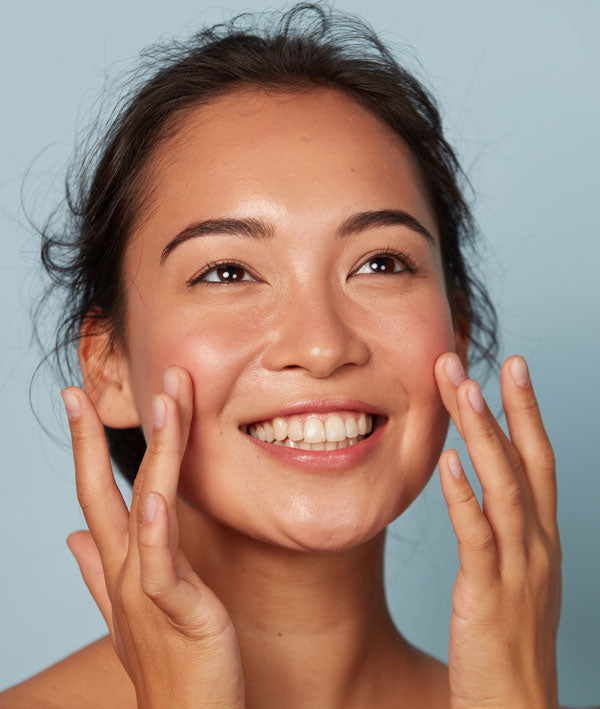One skin issue that may be worse than acne itself is acne scarring. These scars are often difficult to treat, and can greatly impact your self esteem. Below, we’re covering what you can do to prevent acne scars in the first place, and the best treatments for clearing these scars for good.
Understanding Acne Scars
Acne scars often plague those with moderate to severe forms of acne. These scars are caused by the body’s response to inflammation related to a blemish. As an attempt to heal, the body produces either too much or too little tissue, leaving behind a scar after the blemish is gone.
There are two main categories of acne scars. Hypertrophic scars form when there is an excess of tissue, resulting in a raised scar. On the other hand, atrophic scars are formed when there is a lack of tissue, leading to a small dent in the skin.
People also refer to dark spots left behind by blemishes as acne scars. While not technically acne scars, these marks (called post-inflammatory hyperpigmentation, or PIH) can be caused by the same triggers. There are also some treatments that can help heal both acne scars and post-inflammatory hyperpigmentation.
Prevention of Acne Scars
The best way to prevent acne scars is avoiding breakouts – which of course is much easier said than done! That said, your first line of defense for keeping acne scars at bay will be finding solutions that minimize your risk of breakouts.
Once a pimple has formed, there are some things you can do to minimize the risk of it turning into a scar. The most important rule is to not pick at or pop the pimple. This causes more inflammation, and greatly increases the likelihood that your skin will scar.
What you can do is treat the pimple to help it heal as quickly as possible. This may include using a spot treatment or a pimple patch, and continuing with your anti-acne routine. Keeping the skin hydrated is also essential for maintaining skin health and reducing the effects of drying acne treatments. A hyaluronic acid serum is an especially good choice.
Skincare Routine for Healing Acne Scars
It’s important to note that hypertrophic and atrophic acne scars are difficult to fully eradicate without the help of professional treatments. That said, a good skincare routine can help. PIH, on the other hand, often eventually clears on its own – but a targeted skincare routine can speed up the healing process.
In the morning, use a potent vitamin C serum – like the Vitamin C Boost Serum. Vitamin C stimulates collagen, which can help reduce the appearance of acne scars. It’s also great for fading discoloration from PIH for a more even skin tone. In the evening, alternate between using retinol and a chemical exfoliant made with alpha hydroxy acids. These ingredients can improve both texture issues and discoloration.
Professional Treatments
If you’re looking for a more intensive treatment, a dermatologist may suggest dermabrasion, laser resurfacing, microneedling, and/or chemical peels. Keep in mind that multiple treatments are often necessary to fully get rid of scars.
Natural Remedies
While targeted skincare products and professional treatments are your best bet for healing acne scars, there are some topical natural remedies that may help. Some have purported that masks or toners made with ingredients like tea tree oil, honey, turmeric, and apple cider vinegar have helped with their scarring.
Diet & Lifestyle
A good diet can be an excellent supplement to your acne scar treatments. There are certain foods that are packed with vitamins, minerals, and antioxidants that can be helpful for healing the skin and boosting overall health. This includes pumpkin, sweet potatoes, leafy greens, quinoa, and berries.
As far as lifestyle factors go, getting enough sleep is key. While sleep alone won’t eradicate scars, it’s still vital for your skin’s restoration process, as the skin repairs itself as you rest. Wearing sunscreen and avoiding direct sun is also essential, as UV rays can further damage the skin and hinder the healing process.






